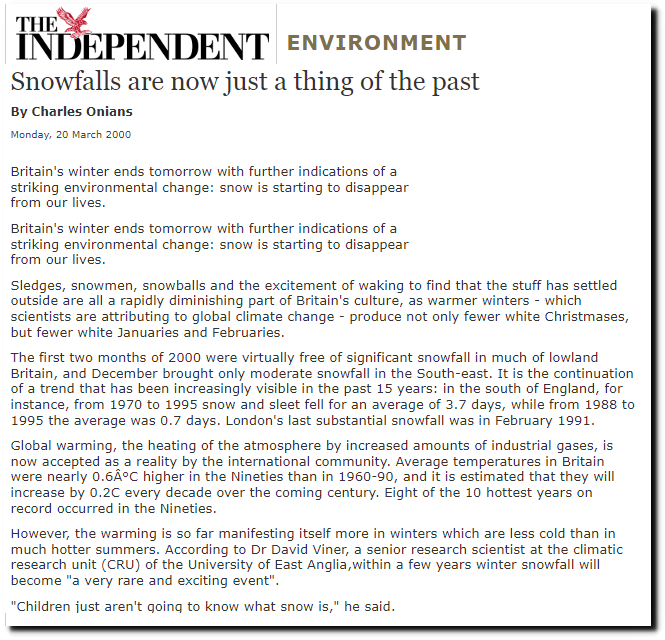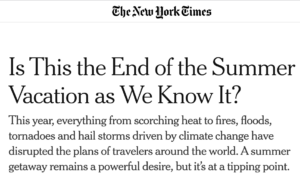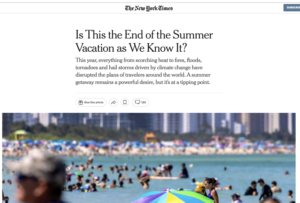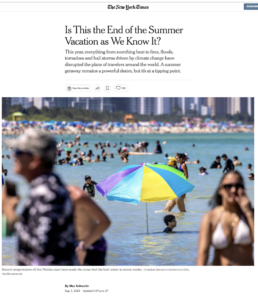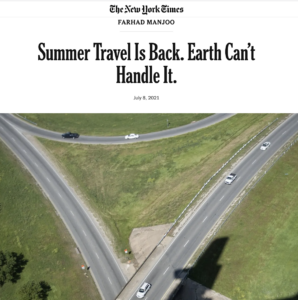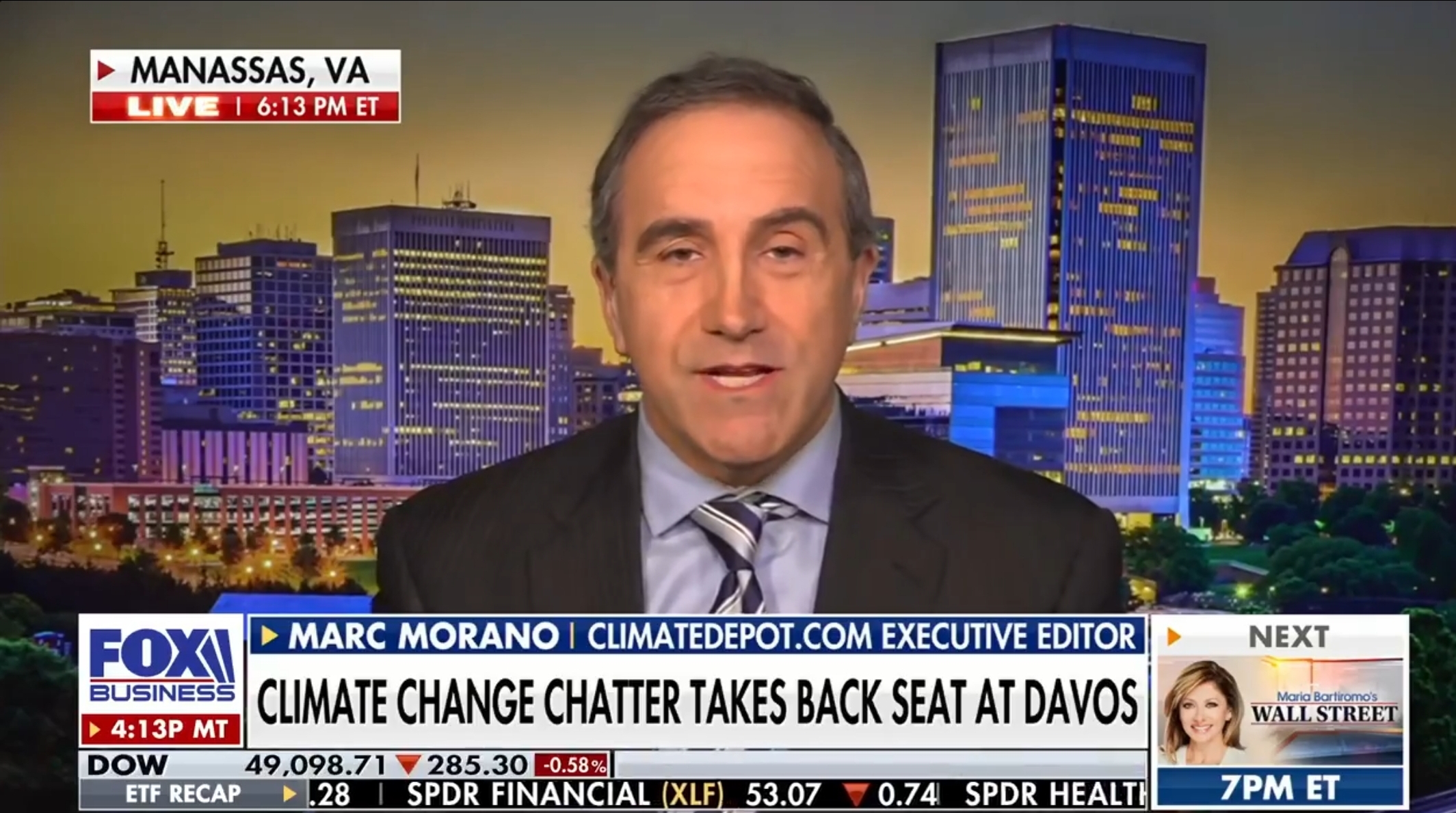https://www.nytimes.com/2023/08/05/travel/summer-travel-climate-change.html
NYT – By Mac Schwerin – Aug. 5, 2023
You can’t escape the orange. That’s what travelers this summer have been reckoning with — swaths of tangerine, traffic cone and burnt sienna on maps indicating record high temperatures around the globe. Four concurrent heat domes from the southern United States to East Asia descended on millions — Phoenix residents enduring 31 days of 110-degree-plus temperatures. Italians in more than a dozen cities under extreme weather warnings. And in South Korea, at least 125 people were hospitalized for heat-related conditions at the World Scout Jamboree.
…
As the summer travel engine kicked into high gear this year, it wasn’t just the scorching heat affecting carefully laid plans. There were also fires, floods, tornadoes and hail storms. Eight inches of rainfall left parts of Vermont coping with catastrophic floods. Tens of thousands of people, including thousands of tourists, had to evacuate islands in Greece because of wildfires. (Prime Minister Kyriakos Mitsotakis on Wednesday offered a free weeklong stay in 2024 to those travelers affected — in spring or fall.) The popular music festival Awakenings canceled a date in the Netherlands because of concern over hail, lightning and thunderstorms.
Increasingly dangerous weather now hits classic summer destinations, with conditions growing more erratic, expensive and deadly. According to the National Oceanic and Atmospheric Administration, the United States has experienced four climate disasters since May, each causing over a billion dollars in damages. The National Park Service estimates that more visitors have died of heat-related causes since June than do in an average year. The indirect toll is almost certainly higher: A recent study found that summer heat waves killed 61,000 people in Europe last year.
…
But even if the idea of a summer getaway remains culturally resilient, is it still practical? Where to go is certainly less obvious — you can’t hide from reality when reality is 100-degree seawater, or a raging wildfire.
For decades, science has confirmed that unabated climate change will cause more misery, more hardship and cost millions of lives in the years to come. We’re getting a taste of the results this summer. Our relationship to travel has reached a tipping point. What happens when we can’t just vacation through it?
…
Strong demand, migrating patterns
Despite all the crises, global arrivals — the total number of tourists who cross a border — are projected to be up 30 percent from last year, according to the Economist Intelligence Unit, a research division of the media company. The World Tourism Organization reports that travel to Europe is now at 90 percent of prepandemic levels.
And tourism is big business. The sector’s growth outperformed global gross domestic product growth by more than 40 percent in 2019, according to the World Travel & Tourism Council. That same year it employed 333 million people worldwide — equivalent to one in 10 jobs — and accounted for more than 10 percent of the global economy.
…
In the absence of national or unified support, planning may fall to corporations with pockets deep enough to marshal resources at scale. “Disney is sort of a poster child for a really good way to handle large numbers of people effectively,” said Daniel Scott, a professor of geography and environmental management at the University of Waterloo, in Canada. He suggested that the business model of globalized tourism may start to mimic the integrated resorts typified by Disney, where a single entity owns the infrastructure and controls visitor experiences with greater predictability.
It’s impossible to know where we go from here. But the cognitive dissonance of summer travel in a warming world is catching up to us. Tragic headlines and statistics are prompting hard looks at the nature of tourism: who benefits and who gets to participate. More people will find themselves confronting personal and increasingly tough decisions — and, like Ms. Barber, perhaps choosing a less appealing but more comfortable option: “We just all stayed home and huddled in a room with the air-conditioner on,” she said.
Lauren Sloss and Niki Kitsantonis contributed reporting.
#
Related Links:
2021 New York Times: ‘Summer Travel Is Back. Earth Can’t Handle It.’ – By Farhad Manjoo – “To cruise or not to cruise? To safari or stay put?…Tens of millions of jobs and trillions of dollars in economic activity are riding on its return to normality. But that would be a mistake. Tourism should not return to anything like its old, profligate normal. The pandemic has presented the world with an opportunity to reset how we tour this planet, and we should reach for it.”
#
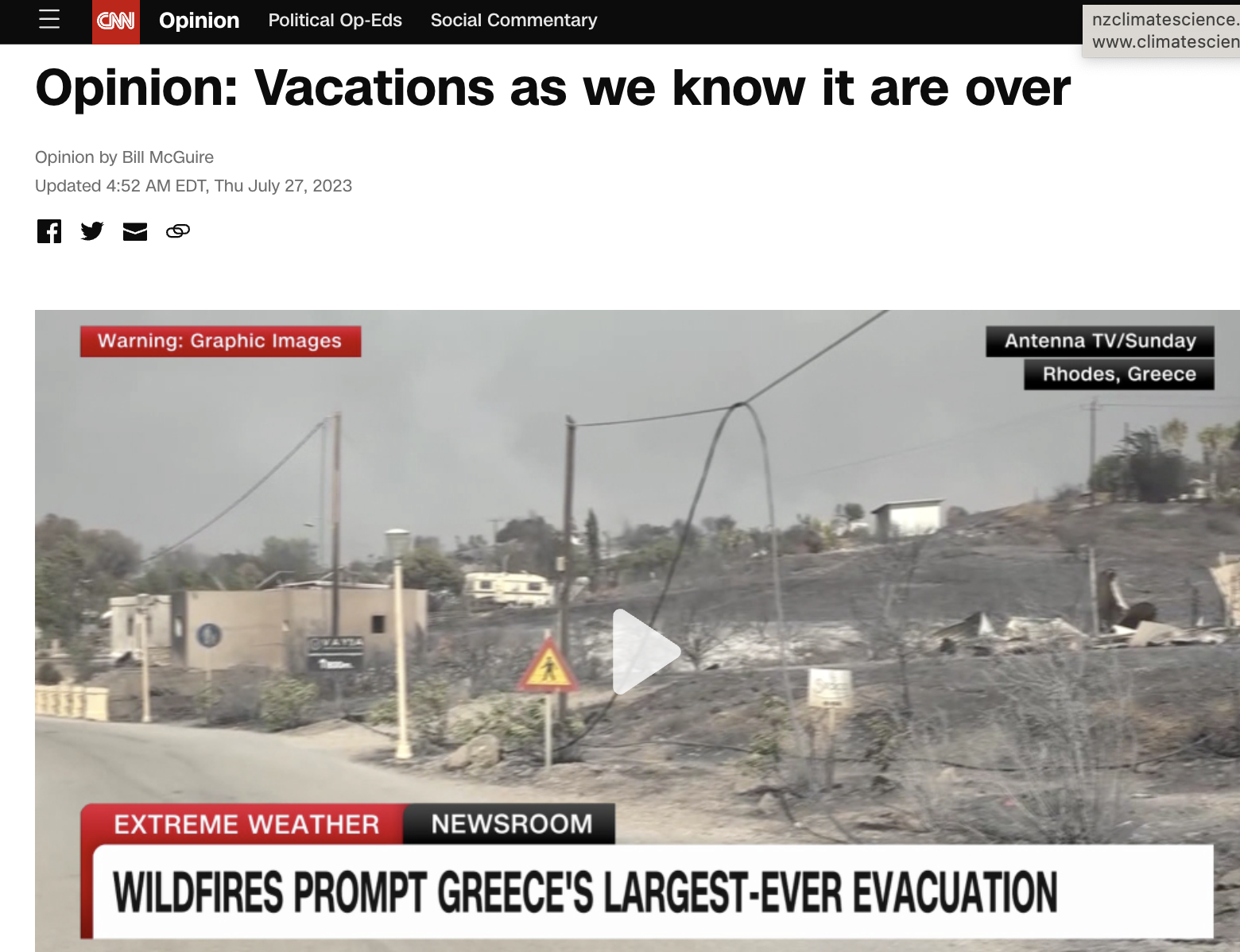
CNN July 27, 2023 commentary by University College London Emeritus Prof. Bill McGuire: “Maybe we should take a lesson from the pandemic, when staycations were pretty much enforced…Vacations need to return to their roots, or at least move in that direction. In particular, holidays abroad need to be decoupled from flying, which means — as far as Europe is concerned — train, car or coach.
The familiarity and convenience of being close to home can bring its own contentment, comfort and well-being…What’s more, we’ll be able sunbathe in the warm glow of knowing we have slashed the size of our carbon footprint — making us part of the solution rather than the problem.”
#
July 2023: ‘Is This the End of Summer Vacation?’ – By Andrew Moseman – “In a climate changed world, though, summer is swiftly being rebranded as a time of compounding calamity…The ocean is boiling, and as the world suffers through heat wave after heat wave — adding up to the hottest year on record — it is, quite simply, unpleasant to be outside…Given the increased risk of climate events with the potential to disrupt flights or highways, travelers will need a Plan B or C for how to spend summer vacation…Should we give up on the summer vacation fantasy? The question is not to be considered lightly.”
.
